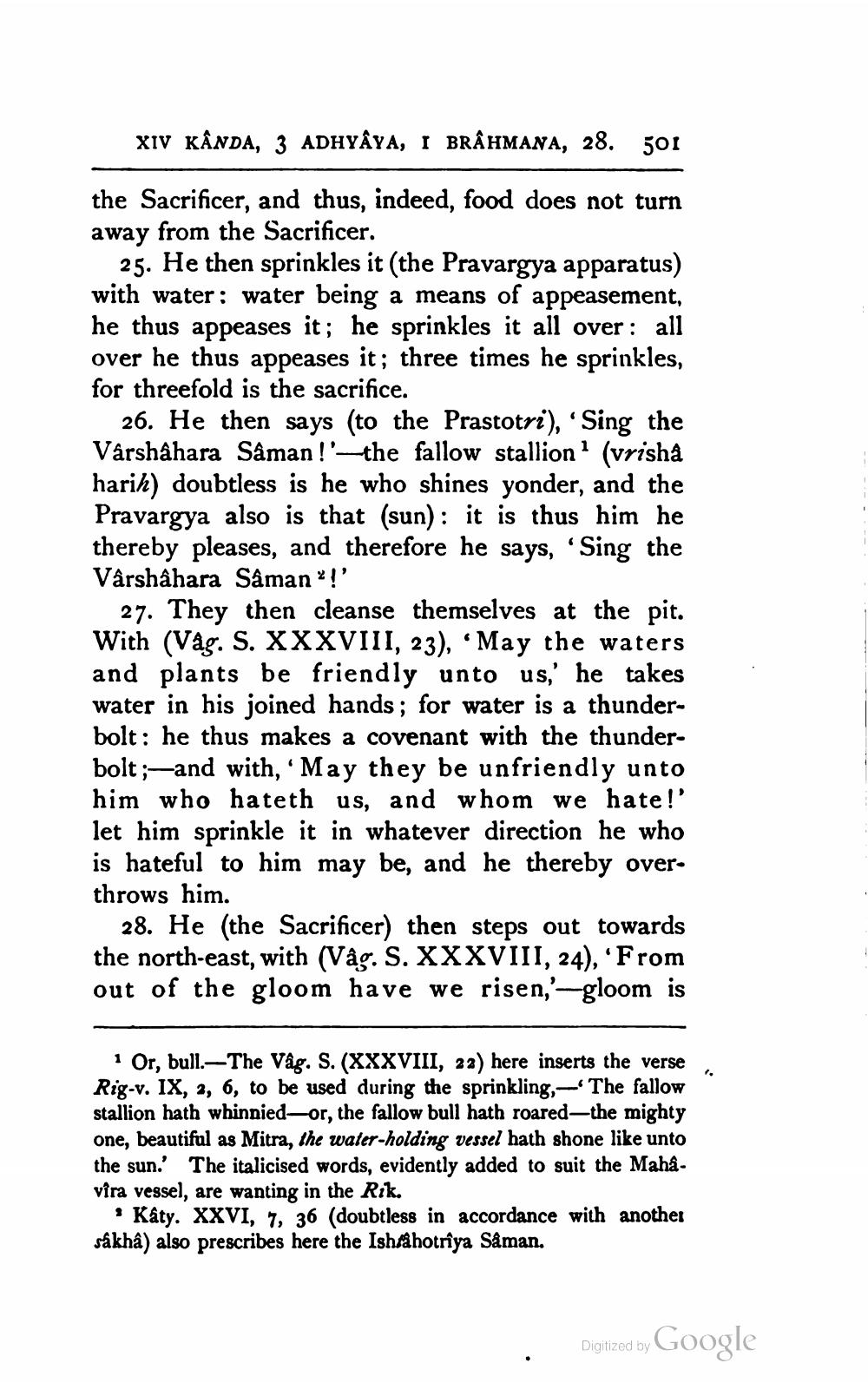________________
XIV KÂNDA, 3 ADHYÂYA, I BRÂHMANA, 28. 501
the Sacrificer, and thus, indeed, food does not turn away from the Sacrificer.
25. He then sprinkles it (the Pravargya apparatus) with water: water being a means of appeasement, he thus appeases it; he sprinkles it all over : all over he thus appeases it; three times he sprinkles, for threefold is the sacrifice.
26. He then says (to the Prastotri), 'Sing the Varshahara Saman!'-the fallow stallion' (vrisha harih) doubtless is he who shines yonder, and the Pravargya also is that (sun): it is thus him he thereby pleases, and therefore he says, 'Sing the Vârshầhara Saman?!'
27. They then cleanse themselves at the pit. With (Vâg. S. XXXVIII, 23), “May the waters and plants be friendly unto us,' he takes water in his joined hands; for water is a thunderbolt: he thus makes a covenant with the thunderbolt;and with, May they be unfriendly unto him who hateth us, and whom we hate!' let him sprinkle it in whatever direction he who is hateful to him may be, and he thereby overthrows him.
28. He (the Sacrificer) then steps out towards the north-east, with (Vâg. S. XXXVIII, 24), 'From out of the gloom have we risen,'-gloom is
Or, bull.— The Våg. S. (XXXVIII, 22) here inserts the verse Rig-v. IX, 2, 6, to be used during the sprinkling,—The fallow stallion hath whinnied-or, the fallow bull hath roared-the mighty one, beautiful as Mitra, the water-holding vessel hath shone like unto the sun. The italicised words, evidently added to suit the Mahåvira vessel, are wanting in the Rik.
• Katy. XXVI, 7, 36 (doubtless in accordance with another såkhâ) also prescribes here the Ishfhotrîya Saman.
·
Digitized by Google




